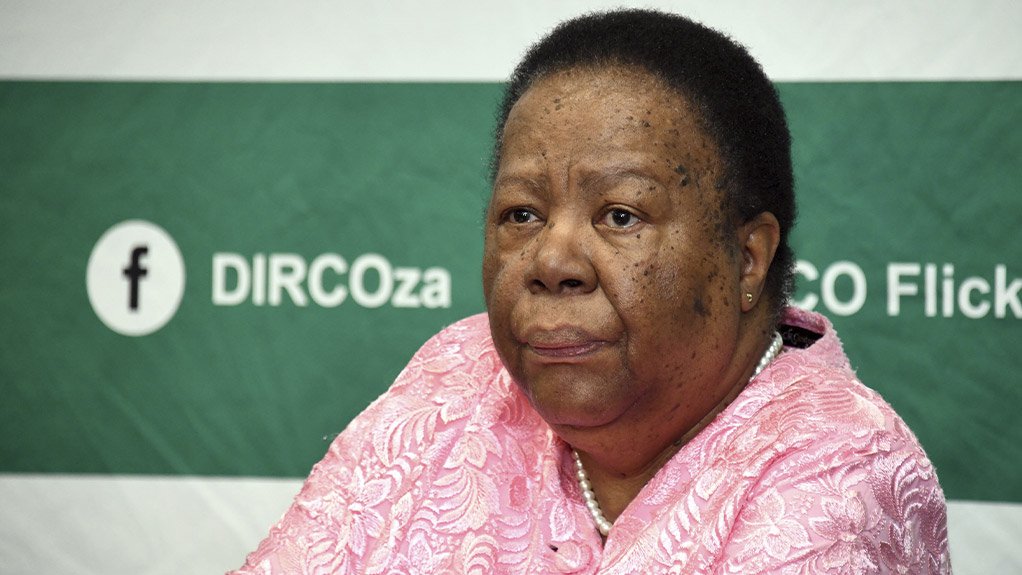The government is still barred from donating R50-million to Cuba.
This was after the Supreme Court of Appeal (SCA) turned down the Department of International Relations and Cooperation's (Dirco) application for leave to appeal an interdict that prevented it from donating the money to Cuba.
In March last year, it emerged that Dirco intended to donate to the Caribbean country, which has been facing a blockade from the US for many years.
In response to a written parliamentary question from Democratic Alliance MP Willem Faber, International Relations and Cooperation Minister Naledi Pandor said the Cuban government had called on South Africa and other partner countries in their "hour of need" in July 2021. Cuba faces chronic food, fuel, medicine, and electricity shortages.
Pandor said the African Renaissance and International Cooperation Fund (ARF), located within Dirco and legally constituted to implement humanitarian assistance of this nature, was coordinating the project.
However, lobby group AfriForum approached the courts for an urgent interdict to stop the donation, pending an application to review the decision to provide it.
When the matter was heard in the Gauteng High Court in Pretoria in March 2022, AfriForum argued that no mandatory parliamentary overview was conducted over the donation and that the National Treasury did not properly approve it.
Dirco countered that the interdict application was "premature" and submitted that, while the commitment to allocate the funds had been made, "the decision was not yet binding given that further steps towards concluding the agreement were still outstanding between the two governments".
However, Judge Brenda Neukircher found that AfriForum had demonstrated, at least prima facie, that National Treasury's approval for Dirco to retain the R71-million was irrational and, perhaps even, unlawful.
"It has also demonstrated that at the time Minister Pandor wrote to the Minister of Finance to approve the R50-million loan, the AR Fund did not have sufficient means to make (or honour) that donation. Although it may well be argued that the case made out by Afriforum is somewhat tenuous, that is all that is required to succeed on this ground – and it has," reads Neukircher's ruling.
"Cuba has not asked for funds – they have asked for aid in the form of food and medical supplies. On the respondents’ own version this request will be implemented through supply chain management processes which are regulated by the PFMA and these procurement processes were completed in December 2021.
"The respondents' argued that all that remained of these processes was for the service provider to be appointed. However, therein lies the irreparable harm – once the service provider is appointed and the humanitarian aid purchased, the money has been expended. This could be at any stage as the respondents have failed to divulge any further information on this issue. Thus the harm is immanent and ongoing."
The ruling stated, "Given the fact that the respondents have refused to provide any form of an undertaking not to continue with the donation pending the outcome of future proceedings, I am of the view that Afriforum has demonstrated the irreparable harm to be suffered were this interdict not to be granted – the public purse stands to lose R50 million which will affect every single South African on many levels."
She granted the interdict.
Dirco sought leave to appeal, arguing that the judgment grossly interfered with the principle of the separation of powers as enshrined in the Constitution, as it was the sole prerogative of the executive, and not the courts, to conduct international relations.
AfriForum countered that when it came to the issue of the separation of powers, the Constitution was the supreme law for all three arms of government, and that the court was entitled to enter into the arena and police unlawful actions - such as the rolling over of funds to finance the donation.
Neukircher ruled that, after "careful consideration of the application for leave to appeal, the comprehensive heads of arguments", and the arguments presented before the court, she was convinced that granting leave to appeal was "not in the interests of justice" and dismissed it with costs.
Dirco then applied directly to the SCA for leave to appeal.
Having considered Dirco's notice of motion and the other documents, the SCA dismissed the application with costs, "as there is no reasonable prospects of success in an appeal and there is no other compelling reason why an appeal should be heard", according to the order by Judges Glenn Goosen and Cagney Musi, handed down on Tuesday.
EMAIL THIS ARTICLE SAVE THIS ARTICLE
To subscribe email subscriptions@creamermedia.co.za or click here
To advertise email advertising@creamermedia.co.za or click here











